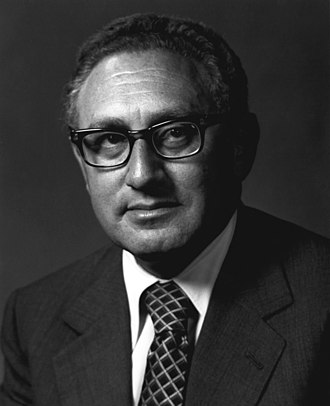Discover Your Roots
SIGN UPDiscover Your Roots
SIGN UPHenry is a male name of German origin, meaning "Ruler Of The Home." This strong and timeless name is derived from the Old Frankish name Heimeric, composed of "haima," meaning "home," and "rīk," meaning "ruler." The name has a rich history, with variants such as Heinrich in Old High German and Harry in English. It was popularized by English kings, and its short form, Harry, became the spoken form of Henry in medieval England. The name has been consistently popular in English-speaking countries for centuries and continues to be widely used. Additionally, it has numerous variations and forms in different languages, making it a truly global name. Henry is also associated with various notable figures in history, including royalty, politicians, artists, and sportsmen.

Henry VII (28 January 1457 – 21 April 1509), also known as Henry Tudor, was the King of England and Lord of Ireland from 1485 until his death in 1509. As the first monarch of the House of Tudor, Henry was born at Pembroke Castle to Lady Margaret Beaufort and Edmund Tudor, 1st Earl of Richmond, who died three months before Henry's birth. The descent of his mother, Margaret, from the legitimised House of Beaufort strengthened Henry's claim to the English throne. He rose to prominence after his forces, supported by France and Scotland, defeated Richard III at the Battle of Bosworth Field, becoming the last king of England to win his throne on the field of battle. Henry VII married Elizabeth of York, daughter of Edward IV, to strengthen his claim and restore power and stability to the English monarchy following the Wars of the Roses. During his reign, he implemented administrative, economic, and diplomatic initiatives, focusing on raising new revenues and stabilizing the government's finances. His supportive policies towards England's wool industry and his standoff with the Low Countries had long-lasting benefits to the English economy. Henry VII's reign of nearly 24 years ended with his peaceful succession by his son, Henry VIII.

Henry V, also known as Henry of Monmouth, was the King of England from 1413 until his death in 1422. His exceptional military achievements during the Hundred Years' War against France established England as one of the most powerful military forces in Europe. Immortalized in Shakespeare's "Henriad" plays, Henry is celebrated as one of the greatest warrior-kings of medieval England. Born in Monmouth Castle in Monmouthshire, he was the son of Henry IV of England and Mary de Bohun. His military experience began during his father's reign, and he played a significant role in the Battle of Shrewsbury at just sixteen years old. After ascending to the throne, Henry revived the English claim to the French throne and renewed the Hundred Years' War, achieving notable victories at the Battle of Agincourt and capturing Paris. His marriage to Catherine of Valois and the Treaty of Troyes resulted in the formation of a union between England and France. Henry's reign, characterized by personal piety, bravery, and military genius, also faced criticism for his occasionally cruel temperament and lack of focus on domestic affairs. Nonetheless, his militaristic pursuits are credited with fostering English nationalism and setting the stage for England's rise to global prominence.

Henry Alfred Kissinger, born on May 27, 1923, was a prominent American diplomat and political scientist who profoundly influenced U.S. foreign policy during the 20th century. As the 56th United States secretary of state from 1973 to 1977 and the 7th national security advisor from 1969 to 1975, he served under Presidents Richard Nixon and Gerald Ford. Kissinger, a German-Jewish refugee, fled Nazi persecution and later served in the U.S. Army during World War II. He excelled academically at Harvard University, becoming a renowned expert on nuclear weapons and foreign policy. His pragmatic approach to geopolitics, known as Realpolitik, was evident in his pioneering of the policy of détente with the Soviet Union and the opening of relations with China. Kissinger's "shuttle diplomacy" in the Middle East contributed to ending the Yom Kippur War, and he negotiated the Paris Peace Accords, which brought an end to American involvement in the Vietnam War. Despite being awarded the 1973 Nobel Peace Prize for his role in the accords, Kissinger's association with controversial U.S. policies, such as the bombing of Cambodia and involvement in coups and conflicts, sparked criticism and accusations of war crimes. After leaving government, he established Kissinger Associates, an international geopolitical consulting firm, and authored numerous books on diplomatic history and international relations. Kissinger's influence extended beyond his government tenure, and his

Henry Carlos Cejudo, born on February 9, 1987, is a well-known American professional mixed martial artist and former freestyle wrestler. He currently competes in the Bantamweight division of the Ultimate Fighting Championship (UFC), where he has held titles in two different weight classes simultaneously, making him one of the fourth UFC fighters to achieve this feat. Cejudo's accomplishments in MMA and freestyle wrestling have solidified his status as one of the greatest combat athletes of all time. Notably, he became the youngest American Olympic gold medalist in wrestling history at the age of 21, winning the 2008 Summer Olympics. Despite a challenging upbringing, including parental substance abuse and financial struggles, Cejudo persevered and excelled in his athletic pursuits. His impressive wrestling career includes numerous titles and accolades, showcasing his exceptional talent and dedication to the sport. Cejudo's inspiring journey from adversity to success has earned him widespread admiration and respect in the world of combat sports.

Henry Ford (July 30, 1863 – April 7, 1947) was an American industrialist and business magnate, renowned as the founder of the Ford Motor Company. He revolutionized the automotive industry by making automobiles affordable for middle-class Americans through his innovative system known as Fordism. Ford's pioneering work in the industry included the introduction of the Ford Model T, which transformed transportation and American industry. Beyond his business endeavors, Ford also advocated for social and economic change, championing the idea of a five-day work-week and promoting consumerism as a means to achieve world peace. Despite his pacifist beliefs, his company became a major supplier of weapons during World War I. Ford's legacy extends to his commitment to lowering costs through technical and business innovations, including the establishment of a franchise system for car dealerships across North America and major cities worldwide. However, he also faced criticism for his promotion of antisemitism and opposition to his country's entry into World War II. Despite these controversies, Ford's impact on the automotive industry and his philanthropic efforts, including the establishment of the Ford Foundation, solidified his place as one of the most influential figures in American history.
All images displayed on this page are sourced from Wikipedia or Wikimedia Commons.We use these images under their respective Creative Commons or public domain licenses. Wherever applicable, author attributions and license information are provided. If you believe an image is used incorrectly or outside its license terms, please contact us so that we can review and correct the issue.